“You can’t stop because of a setback like that.”
Corry Spitters
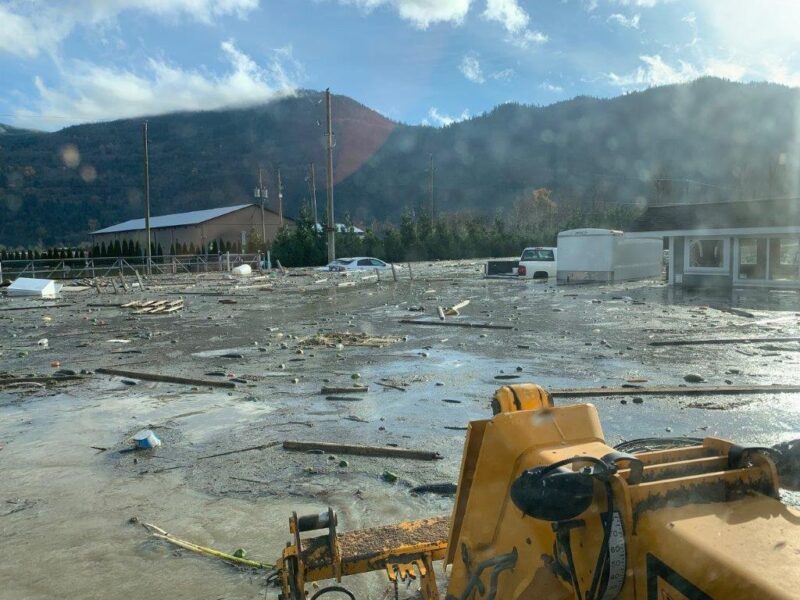
Corry Spitters is Western Canada’s primary supplier of organic chicken to Costco. He grew up surrounded by the industry he would become part of, being raised in the small agricultural community of Nicomen Island next to a slough of the Fraser River.
His father bought their first farm in 1964, after labouring six and half days a week to save money for that purchase. It was a “small, broken, rundown dairy farm milking sixteen cows,” but over the next thirty years it grew into an eighty cow operation.
Corry inherited his father’s work ethic. Every night in grade 10, he’d ride his bike two miles to a local farm where he milked 250 cows. He completed a diploma in agricultural business management from the British Columbia Institute of Technology and managed a poultry equipment dealership.
In 1988, Corry married his first wife and the following years were a mix of joy and loss. The couple welcomed two baby boys and Corry bought his first farm. It was a 20,000-bird-per-cycle poultry farm located in Aldergrove. A couple years later, his wife was diagnosed with cancer. She passed when the boys were still very young.
Corry expanded his farm while spending as much free time as he could with his sons. In 2013, he acquired a larger organic farm in the Sumas Prairie, a flatland created by artificially draining the Sumas Lake. With the help of his sons and brother, they grew the farm four-fold to become Canada’s largest organic poultry farm.
At the time the atmospheric river hit the frequently flooded Sumas Prairie in November 2021, the 66-year old farmer was living with his wife on the original Aldergrove farm while operating the larger Sumas Prairie farm with the help of his brother, one of his sons and a fourteen person farm staff.
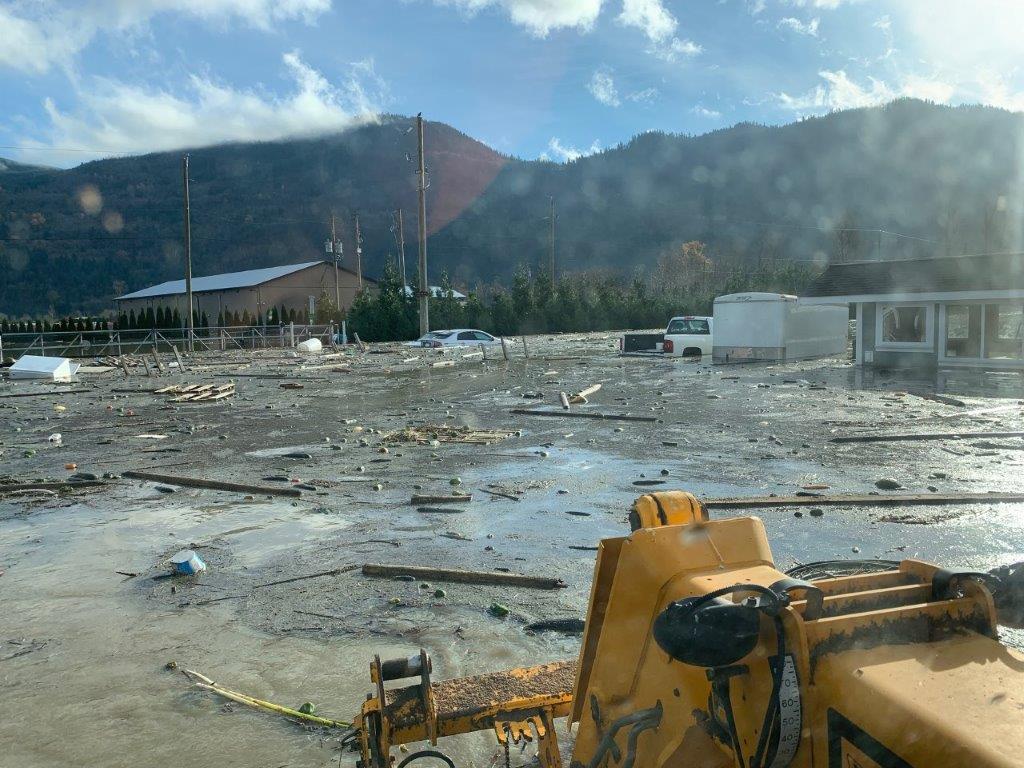
Corry Spitters is Western Canada’s primary supplier of organic chicken to Costco. (CDP Photo/Personal)
Where my farm is, it’s the beach. Before they built the dikes, it’s the place where people would go swimming in Sumas Lake. It takes about three days to fill. It’s like a slow moving freight train you can’t stop. You know what to expect. You just don’t know how bad it will be. But chickens don’t swim.
It was November, right at that turning point where we hadn’t quite gone to winter. It was raining exceptionally, beyond anything normal. We were operating as best we could. We had to drive through a lot of water. But at least we could get to the farm. We had electricity. We have our own wells and water. So we were pretty much self-sufficient.
But once the dike broke, the RCMP said “You have to evacuate immediately.” We were told we’ve got an hour to get out. My workers dropped everything and left. We had to leave the farm for almost forty-eight hours. But we had two days before the water even reached our property line. That’s how big the lake is.
We would have had days to move all our equipment to high ground. We could have lifted all the feed lines. We could have removed all the motors on the bottom floors in all our fans. We probably would have saved almost 90 percent of our equipment.
We were told we couldn’t go back. Well, farmers just went in and did. They drove past the roadblocks. They went cross country. My son, one of my business partners, and two of my workers flew in with a helicopter when we were told we couldn’t get there.
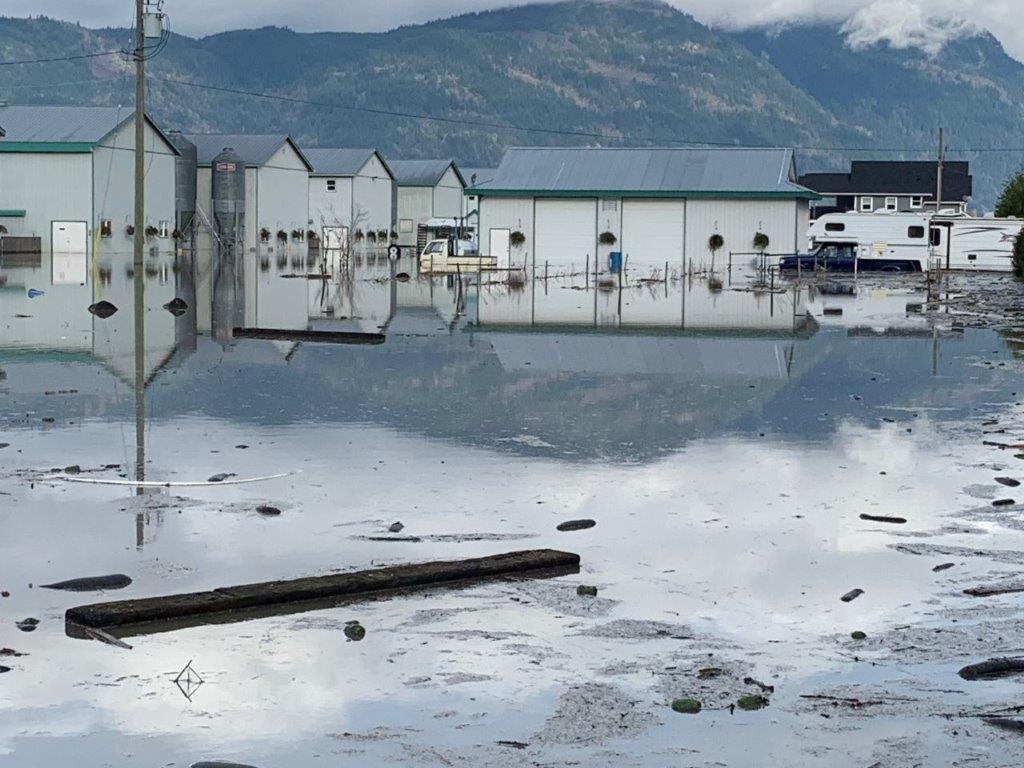
Corry Spitters’s barns were lost during the 2021 southern British Columbia floods. (CDP Photo/Personal)
When they first flew in, the barns had still not gotten underwater. I was on the phone with them. Within an hour of being on the farm, they said we can’t save them. There are seven rows of barns. Within four hours, the first had already gone underwater.
Once a bird gets wet, it lays down and suffocates. Birds were already starting to suffocate. We couldn’t move that many birds. There was too many. There’s nowhere to go with them. All our downstairs floors were annihilated. We had twenty-one floors. They’re 300 [feet] by 42. We had 196,000 birds on the bottom floors. They’re all dead.
It was a mess to clean up. All the garbage from the lake tended to move into our property. We had fuel tanks. We had kids toys. We had plastic wheeled bicycles. We had thousands upon thousands of zucchinis.
The dead chickens hadn’t really started to ripen or deteriorate too much. The water was cold. But it smelled. It’s a smell I’ve never smelled before. It was not pleasant. The water was very sick. If someone told you had to go walk in that without protection, you wouldn’t do it. The first thing we did was get our employees proper gear. I went to Cabela’s. I bought fifteen sets of hip waders for all my workers. And rain gear because it didn’t stop raining for days.
First we have to take the dead birds out. Because we have our own equipment, we’re able to skeleton rake. Without that you’re literally picking this stuff up by hand. Pick up all that mortality. Load it into bins. Take it away to composters. Then the manure. Lagoons of manure. It was somewhat contained in the barns. The minute we opened up the doors, this soup wanted to run out. We scooped it as best we could, and loaded it into watertight bins. That was hauled away.
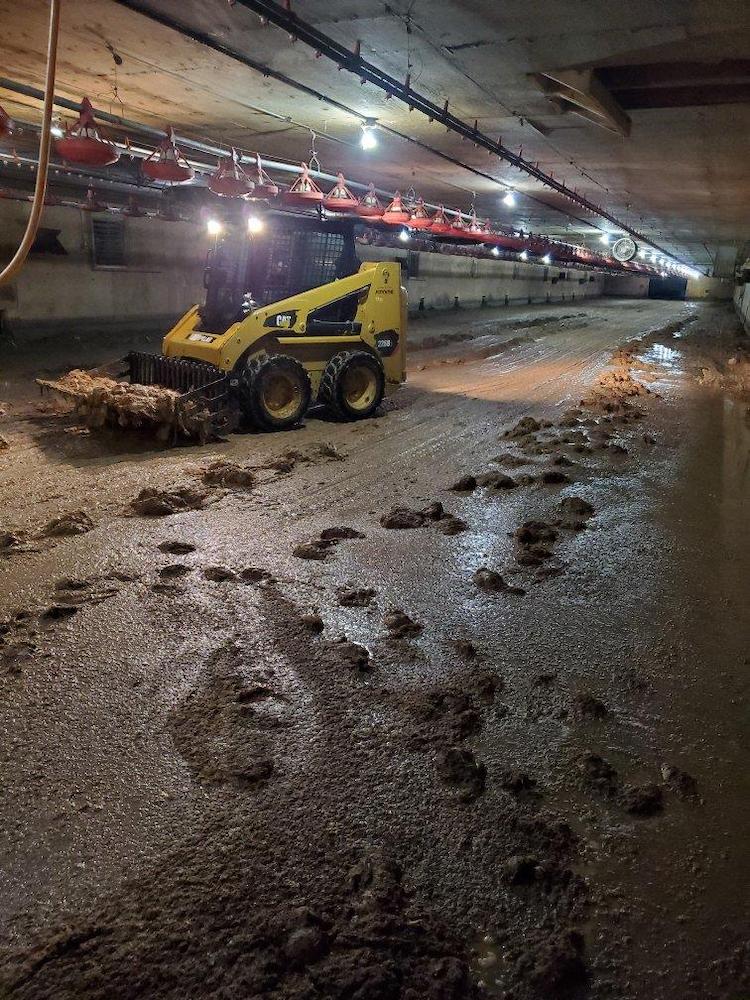
There were 196,000 dead chickens on the bottom flood of Corry Spitters farm. (CDP Photo/Personal)
It was traumatic. Some employees took it better than others. Some were overwhelmed. They needed really specific instructions. They could do the work, but they couldn’t process what was in front of them. It’s upsetting. I was there. My son was directing traffic. I didn’t direct because I knew what it would do to me. There are certain things that you just say, “Well, I got people for that.” I did walk into the barns. I saw it. I’ll never forget it. I know when there’s a crash, everybody wants to look. Sometimes it’s better to read about it in the news.
Maybe that’s my safety valve. I don’t know. I’m dealing with a business challenge right now that I didn’t see coming. I have to break it down to the parts I can. I can’t dwell on the negative effect of it. When my wife passed away, there was nothing I could do after she was gone. Every day that she lived, I was there beside her. But the minute she passed, I went into my barns. I went back to work.
For flood mitigation, the government knew what to do. And they’ve known what to do for the last twenty years, ever since the flood in ‘90. The dikes were not maintained properly. The government didn’t listen to the experts and the farmers. They took it upon themselves that they were the authority. Rather than work together, they became the obstacle. The community was functioning quite well without them. The problems were solved by the people that were there. They took charge of moving the livestock, they took charge of a moving feed around. Because that’s what they do. They have the equipment, they have the resources to do it. The problem was that we were stopped by the provincial and municipal people to not get access, to not move freely.
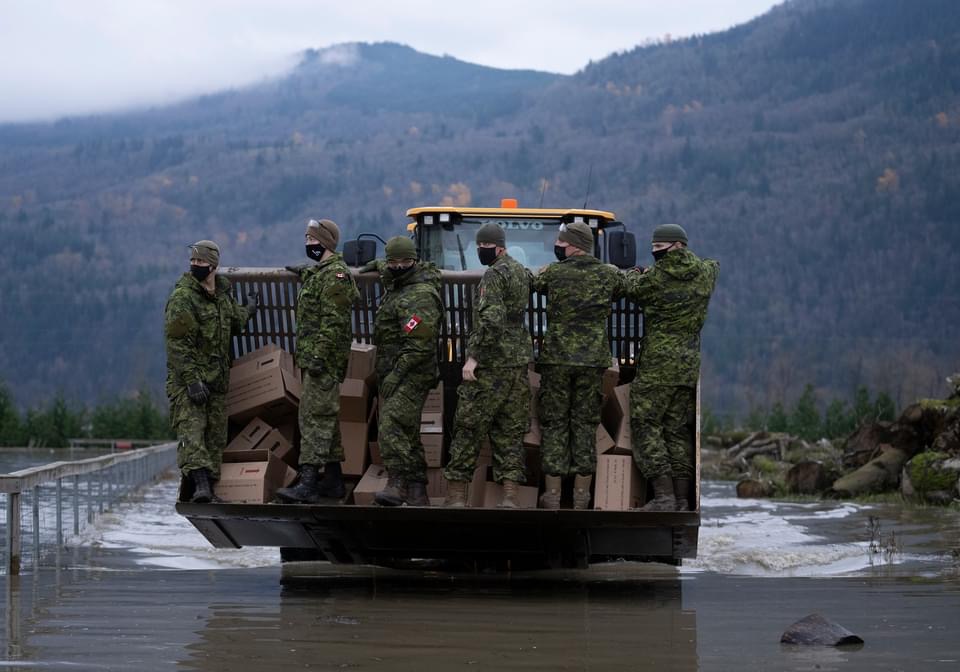
Authorities were an obstacle for Corry Spitters and fellow Sumas Prairie during the 2021 atmospheric rivers that flooded southern British Columbia. (CDP Photo/Personal)
It’s one of those once in a lifetime events that nobody wants to experience. We haven’t got a final number, but we’re gonna be upwards of four million dollars with losses. It’s the first time that I can remember that I actually posted a significant loss. We work on a very thin margin. It could take us seven years to actually pay for it.
We only get 70 percent recovery from government assistance. To this day, we’ve received less than 20 percent. To this day, we’re still fixing. It weighs heavy. Is it insurmountable? No. When you get into the size and scope of what we’re doing, you got to look past that. You can’t stop. You can’t stop because of a setback like that.
This story was originally published in the Fraser Valley Current, on January 11, 2023.
Related Stories
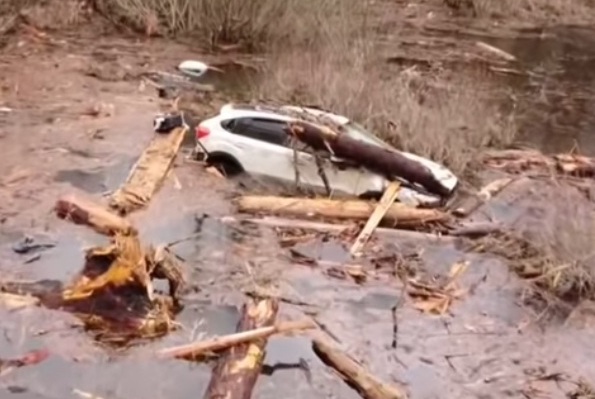
Wanda Turner, Chilliwack, Canada
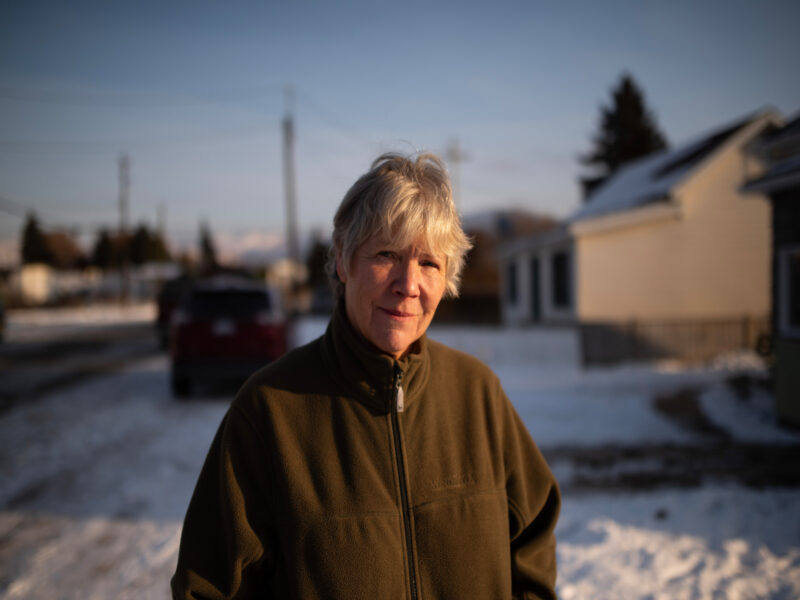
Donna Rae, Merritt, Canada
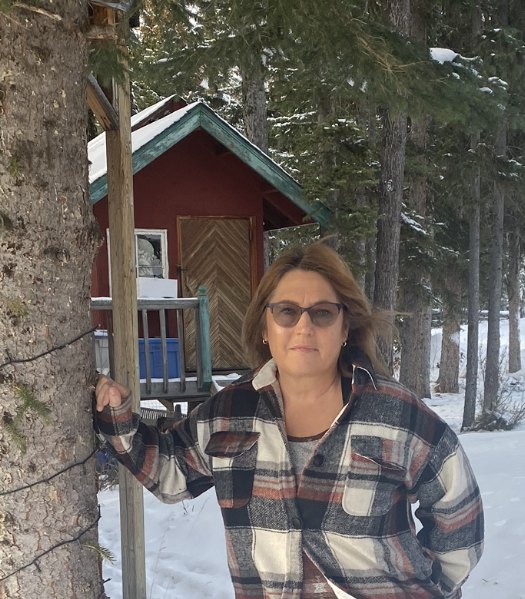
Cyndie Anderson, Mission, Canada